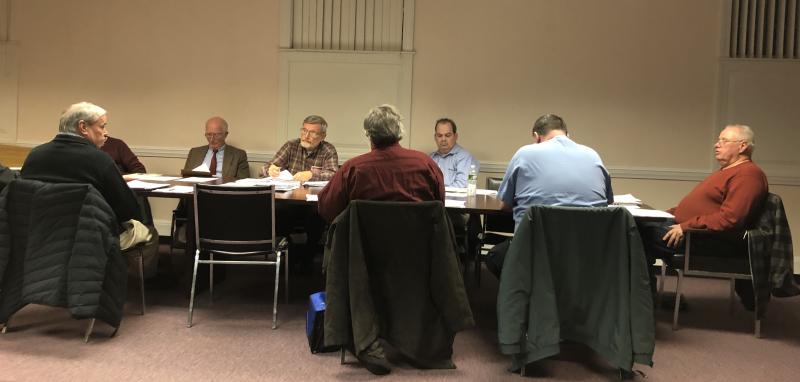Waste District votes to close transfer stations at the end of 2020
The committee governing the Carver Marion Wareham waste district voted on Wednesday night to close the transfer stations on Rte. 28 in Rochester and Benson Brook in Marion on Dec. 31, 2020, and to begin discussions about what to do with the district’s assets and ongoing liabilities.
The motion also indicated that any towns wishing to continue to operate the transfer station on Rte. 28 should begin discussions and work toward an agreement that could begin on Jan. 1, 2021.
The only three “no” votes were from Wareham members Selectman Jim Munise and Joseph Benedict and Carver Selectman Bob Belbin.
The vote solidified plans that had been discussed at previous meetings: The district will be reduced to a “skeleton,” responsible only for the ongoing liabilities of the district, like health insurance for former employees, pensions, and ensuring that the closed Carver landfill meets Department of Environmental Protection requirements.
While Marion has municipal waste pick-up that will continue regardless of the district’s plans, and owns the Benson Brook transfer station, which the town could choose to continue to operate, the future for waste disposal in Wareham and Carver is much less clear.
The two towns could operate the Rte. 28 transfer station through a new two-town district or inter-municipal agreement, but those discussions have not yet begun. The Wareham Board of Selectmen voted on Dec. 3 to authorize Munise and Town Administrator Derek Sullivan to meet with Carver representatives to discuss running the station together, but the Carver selectmen have not yet authorized those discussions.
The Waste District was formed by Carver, Marion and Wareham in 1975 to allow the three towns to negotiate jointly with Covanta SEMASS, a waste-to-energy company in Rochester so they could dispose of their trash for free in exchange for allowing Covanta to dispose of ash and trash for free in the Carver landfill.
The district’s contract with Covanta will expire on Dec. 31, 2020, so the committee needs to decide the future of the waste district and do so in time for it to be approved by voters at town meetings.
Complicating the issue is the fact that the district’s assets and liabilities are somewhat unknown. In part, this is because the waste district fired its Executive Director of 45 years, Ray Pickles in 2018. Pickles was later accused in civil and criminal courts of embezzlement and larceny, with trials still ongoing.
Much of the meeting was dedicated to discussions of the district’s assets and liabilities, some of which are unknown due to Pickles’ alleged long-term embezzlement and a history of sloppy book-keeping. While the group did not decide how the costs and assets would be divided, they discussed doing so based on the number of people or households in each town as a potential way to do so equitably.
The committee will meet again in January to continue discussions.















